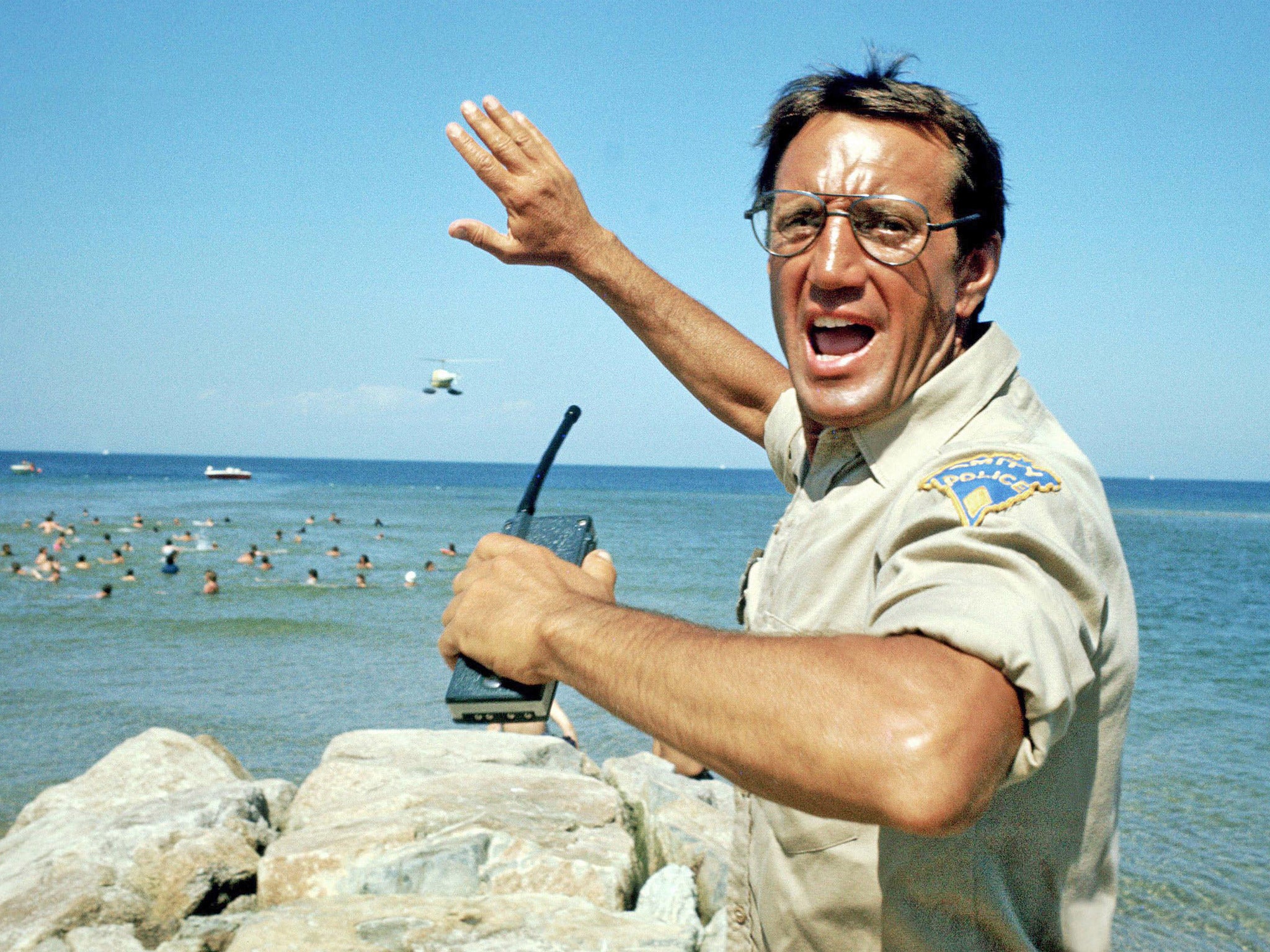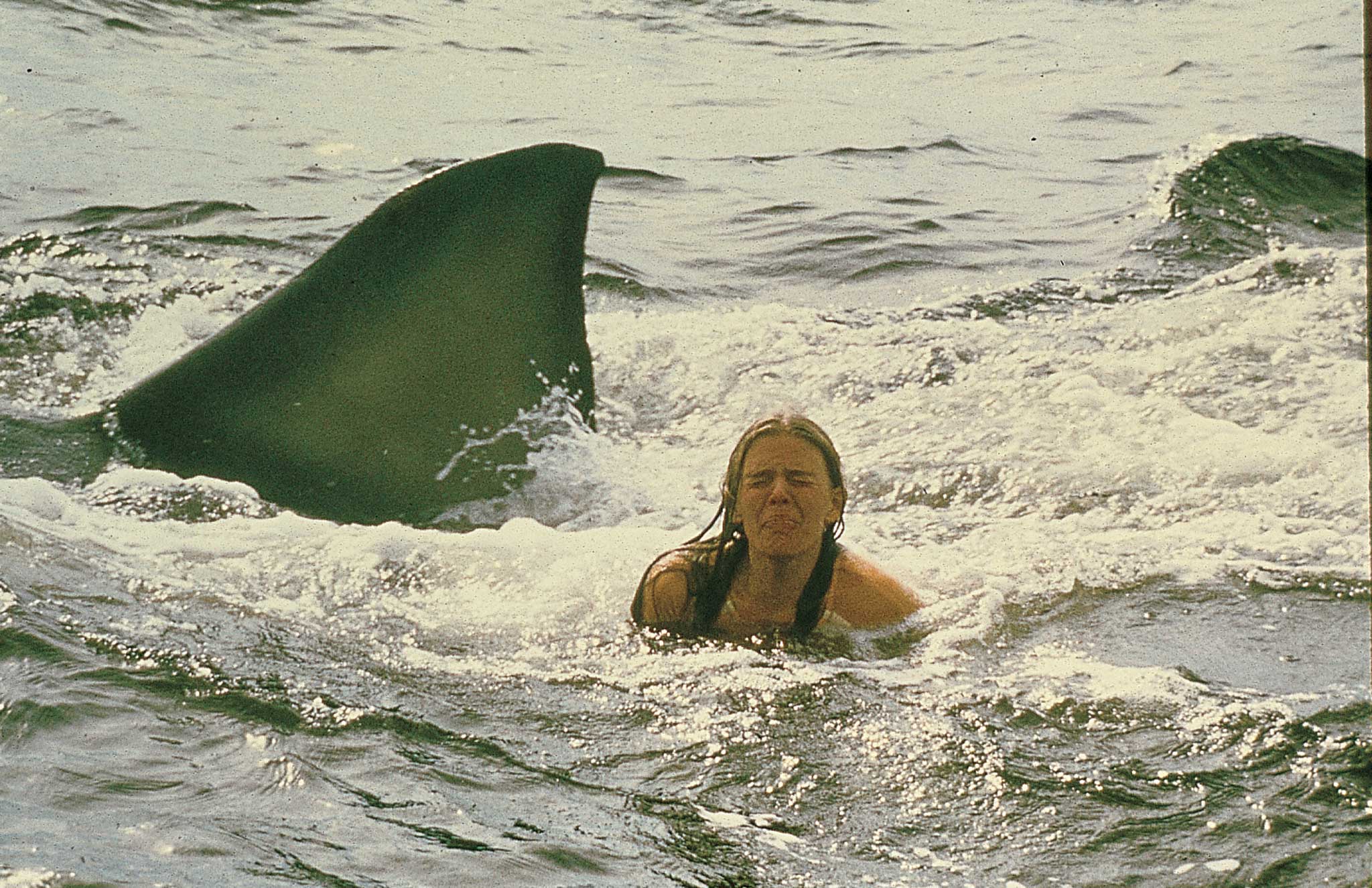Jaws at 40 - is Peter Benchley's book a forgotten masterpiece?

It is forty years since a little-known writer named Peter Benchley published a first novel called Jaws. Estimated sales of 20 million books changed Benchley’s life forever, not to mention popular culture as we know it, helped of course by Steven Spielberg’s blockbuster movie released a year later in 1975.
Without Jaws there would be no Shark Week, no ‘Jumping the Shark’, and, proving that not all great ideas produce good results, no Jaws 2, 3-D or The Revenge. Commentators from Fidel Castro to Slavoj Zizek have had their say about Benchley’s great white. It has been a metaphor for dispassionate nature, international Communism, Watergate, the majesty of the ineffable and Fascism. For Peter Biskind, the shark was a ‘greatly enlarged, marauding penis’. For the more literal Kingsley Amis, Jaws was about a bloody great shark that could eat you alive.
While next year’s 40 anniversary of Spielberg’s film will doubtless be accompanied by anniversary DVDs and documentaries reiterating the rigours of the shoot (mechanical sharks sinking, Robert Shaw drinking), Benchley’s prose man-eater has entered middle-age rather quietly. His UK publishers have not issued a celebratory edition, although a 40 anniversary Jaws has been released in the United States.
Perhaps the nearest thing to a birthday cake is Will Self’s new novel, Shark – although like a recent Radio 4 documentary, he seems more in love with Spielberg’s movie than Benchley’s book. Self centres on the USS Indianapolis scene dreamed up by screen-writers Howard Sackler and Carl Gottlieb, and Robert Shaw who played Quint himself.
The muted celebrations reflect the idea that Benchley’s novel has been swallowed whole by Spielberg’s film. Jaws not only broke box office records, it would not look out of place in any top 50 movie list. Benchley’s original would struggle to make most literary critics’ top 50,000 books. There is little to match Spielberg’s marriage of propulsive storytelling with visual innovation: the dolly zoom on Martin Brody after Alex Kintner is attacked on a lilo; the camera placed wave-high to enhance the vulnerability of unsuspecting bathers.
Benchley’s prose is by turns functional (‘lacking the flotation bladder common to other fish…it survived only by moving’) and melodramatic to occasionally risible degrees: ‘He screamed, an ejaculation of hopelessness’. His dialogue too lacks the memorable pith of the film script. Sing farewell and adieu to lines like: “You go in the cage. Cage goes in the water. Shark’s in the water,” “This was no boating accident,” and of course “We’re going to need a bigger boat,” improvised on set by actor Roy Scheider.
And yet, the hushed celebrations do a disservice to a novel that helped refine the modern bestseller and succeeds in its own right as a compelling, if flawed work of popular fiction. Benchley dreamed up that title. We take its strange power for granted now, but it’s an inspired choice, even more so when one considers the terrible alternatives the author entertained. Many are pretentious: A Question of Evil, Anthropophagus, Jaws of Despair, Dark White. Some are baffling: Squam, Letter on Mundus, Pices Redux. Some are simply terrible: Omnivore, The Edge of Gloom and What Have We Done? Jaws – plural – possesses a latent, biting power that intrigued Stephen Spielberg, although he initially thought was it about a pornographic dentist.

Benchley also invented many of the film’s most memorable set-pieces: the killing of Alex Kintner, his grieving mother’s confrontation with Martin Brody, and the opening, at once mysterious and shocking, primeval and terrifying. Benchley created Amity, a town whose very existence is threatened by the shark’s taste for tourists, and the political pressures heaped on Police Chief Martin Brody.
In a sense, Benchley was simply writing what he knew. Born in New York City, he spent his summers sailing and swimming the waters off Nantucket. His father, Nathaniel, was a respected children’s novelist. His grandfather, Robert, was the revered Algonquin wit. Having cut his teeth writing speeches for President Lyndon Johnson, Benchley became a freelance writer, hoarding two ideas for lunches with New York literary editors: a non-fiction book about pirates, and a novel about a 4,500 pound great white shark attacking swimmers off Long Island. Eventually Tom Congdon at Doubleday bit, paying $1000 for four chapters, which Benchley wrote funny to Congdon’s distaste. The jokes were removed, and the rest was history, eventually.
Jaws was an instant hit, although not a bona fide phenomenon until its paperback release timed to coincide with the movie. The hardback was actually kept from number one by Richard Adams’ Watership Down – offering the pleasing image of a 20-foot great white being fought off by several cute bunny rabbits.
Read today, the novel’s fascination is often inextricable from its weakness. Benchley threw everything at his debut, including a vague mafia plot surrounding the town’s mayor Larry Vaughan, which owes more to Mario Puzo’s The Godfather than Benchley’s familiarity with the Cosa Nostra.
There are doses of un-Spielbergian sex, which are dated to the point of offensiveness: Ellen Brody’s rape fantasises, for example. Nevertheless, her brief affair with Matt Hooper gives the character depths that are absent in the movie where Mrs Brody is little more than a worried wife and mother. She is this in the novel too, but with a job, a hinterland, desires, regrets and something approaching three dimensions.
Benchley’s characters are singularly unlikeable, and all the more interesting for it. Brody remains the focal point, but is edgier, with class and sexual chips on his shoulder. Many are placed there by Matt Hooper, younger, hunkier and WASP-ier than Richard Dreyfuss’ witty ichthyologist. Quint, however, is essentially Quint, a Captain Ahab for the 1970s: two-legged admittedly, but still mad, bad and dangerous to know.
This depiction of human frailty hints at Benchley’s main triumph over Spielberg: namely, the portrayal of the shark at the end of the story. In the film, Quint’s laconic rage while recalling his survival of the USS Indianapolis transforms Jaws into a revenge tragedy. Relentless, remorseless and even devious, the shark is a smiling villain, more Lee Van Cleef than Moby Dick. The Western subtext breaks the surface in the final showdown between great white and Sheriff Martin Brody. The joyful climax, enhanced by Matt Hooper’s resurrection, offers little doubt who we should be rooting for.
The respective conclusions were bones of contention for Benchley and Spielberg. Benchley thought the movie’s was absurd. Spielberg countered, not without cause: “If I’ve got them for two hours, the audience will believe whatever I do in the last three minutes.” His high-octane finale addressed a problem of his own: that the novel ends on a ‘downer’. Benchley’s shark simply stops swimming, defeated by days of punishment and literally choking on Quint: ‘It seemed to fall away, an apparition evanescing into darkness.’ This downbeat conclusion makes a more upscale argument than the film is capable of. Benchley’s shark is an amoral force of nature: not bad, just hungry. And what amoral nature has unleashed, so amoral nature reclaims in death. As Brody swims home, the inference lingers that Amity, not the ocean, is home to genuine evil: corruption, selfishness, infidelity, lies, fury and greed.
Benchley, who died in 2006, would repent his depiction of the great white shark, which now exists on the endangered species list. The great whites killed by accident and design are just a fraction of the 100 million sharks killed each year, largely for their fins. Warnings about the real villains of this tragedy – human beings – are present in Peter Benchley’s Jaws, not Steven Spielberg’s. One day we might even read it and weep.
Join our commenting forum
Join thought-provoking conversations, follow other Independent readers and see their replies
Comments